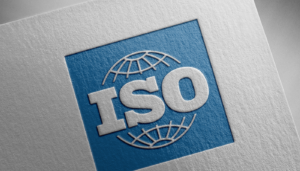In today’s competitive business environment, companies are constantly searching for ways to improve their market value and attract investors. One effective strategy is adopting ISO standards. International Organization for Standardization (ISO) standards provide a framework for quality management, environmental responsibility, and other operational aspects. But how exactly do these standards impact a company’s valuation? Let’s explore how ISO standards can enhance company valuations through marketing of quality, growth into new markets, risk mitigation, and improvement in profitability.
1. Marketing of Quality
ISO standards, such as ISO 9001 for quality management, provide a credible signal to the market that a company is committed to quality. Being ISO-certified sends a message to customers, partners, and investors that the organization adheres to internationally recognized best practices. This builds trust and confidence, making it easier to attract new customers and retain existing ones.
Moreover, ISO certification serves as a powerful marketing tool. Companies can leverage the certification to differentiate their products and services from competitors, highlighting a commitment to quality. For instance, using “ISO 9001-certified” in marketing materials or on the company website signals a strong quality assurance process. In many industries, customers prefer—or even require—suppliers with ISO certification, giving certified companies a competitive edge.
2. Growth into New Markets
ISO standards also facilitate growth into new markets by setting a universal language for quality, safety, and efficiency. Companies looking to expand internationally often find that ISO certification is a prerequisite for entering certain markets or engaging with large clients. For example, ISO 14001 for environmental management is increasingly seen as essential for doing business in Europe, where environmental regulations are stringent.
With an ISO certification, companies demonstrate they meet international benchmarks, which can make it easier to form partnerships, win contracts, and comply with local regulations. It reduces barriers to entry in foreign markets by aligning processes with global standards, thereby accelerating growth opportunities. This can directly boost a company’s valuation by showing a clear path for expansion and scalability.
3. Risk Mitigation
One of the most significant ways ISO standards can enhance valuation is through risk mitigation. Standards like ISO 31000 for risk management provide structured approaches to identifying, assessing, and controlling risks across the organization. By implementing these standards, companies can reduce the likelihood of compliance issues, operational failures, and quality defects.
ISO certifications also support regulatory compliance, which is crucial for companies operating in highly regulated industries such as manufacturing, healthcare, or financial services. For example, ISO 27001 for information security helps mitigate risks associated with data breaches, which can be financially devastating and damage a company’s reputation. By managing risks more effectively, companies can avoid costly penalties and maintain their market position, leading to a higher valuation.
4. Improvement in Profitability
The ultimate goal for any business is to enhance profitability, and ISO standards can contribute to this by streamlining operations and improving efficiency. For example, ISO 9001 encourages a process-oriented approach, helping companies identify inefficiencies and implement continuous improvement strategies. This reduces waste, lowers operational costs, and improves customer satisfaction—resulting in higher revenues and margins.
ISO standards also encourage better resource management. For instance, ISO 50001 for energy management focuses on reducing energy consumption, which can significantly cut costs in industries where energy expenditure is substantial. As companies reduce waste and optimize their use of resources, they not only improve their bottom line but also create a more sustainable business model, which is increasingly valued by investors.
The Valuation Impact
The cumulative effect of adopting ISO standards is a more resilient, efficient, and growth-oriented company. By demonstrating a commitment to quality and best practices, companies not only improve their reputation but also gain access to new markets and mitigate risks. Furthermore, operational improvements and cost efficiencies directly impact profitability.
For investors, these factors translate into a stronger value proposition. A company that consistently meets international standards is seen as lower risk, better managed, and more likely to deliver long-term growth. As such, businesses that implement ISO standards often see higher valuations during mergers, acquisitions, or investment rounds.
In Conclusion
ISO standards offer more than just a badge of quality—they serve as a strategic tool for increasing company value. Whether it’s through marketing differentiation, global market access, risk reduction, or operational efficiency, ISO standards provide a framework that aligns business practices with investor expectations. In an increasingly interconnected and competitive world, achieving ISO certification is not just an operational choice but a strategic decision that can significantly enhance company valuation.
#ISO9001 #ISO14001 #BusinessGrowth #RiskManagement #QualityManagement #CompanyValuation #ISOStandards #Profitability #MarketExpansion #OperationalExcellence



